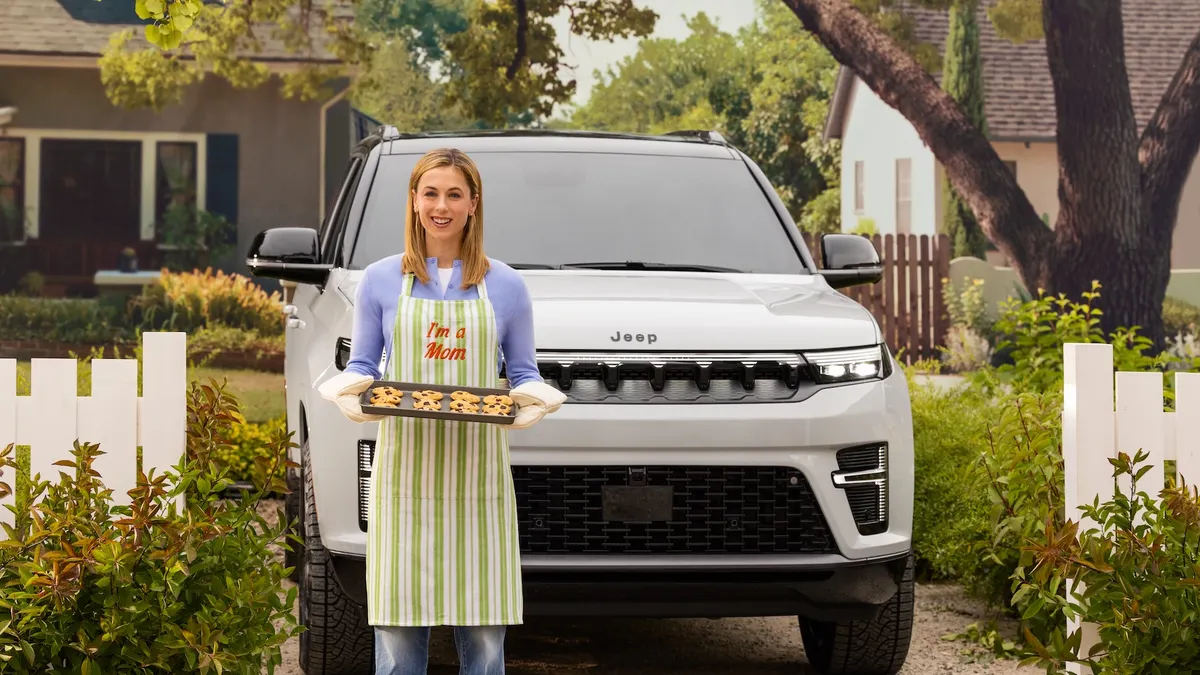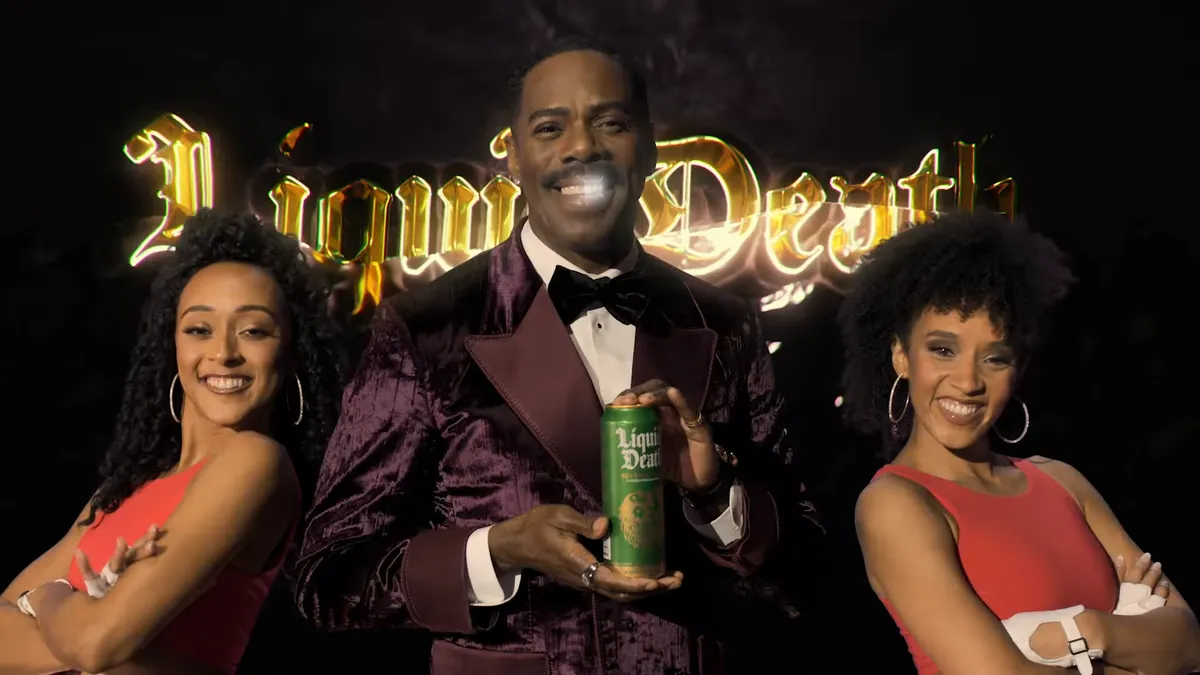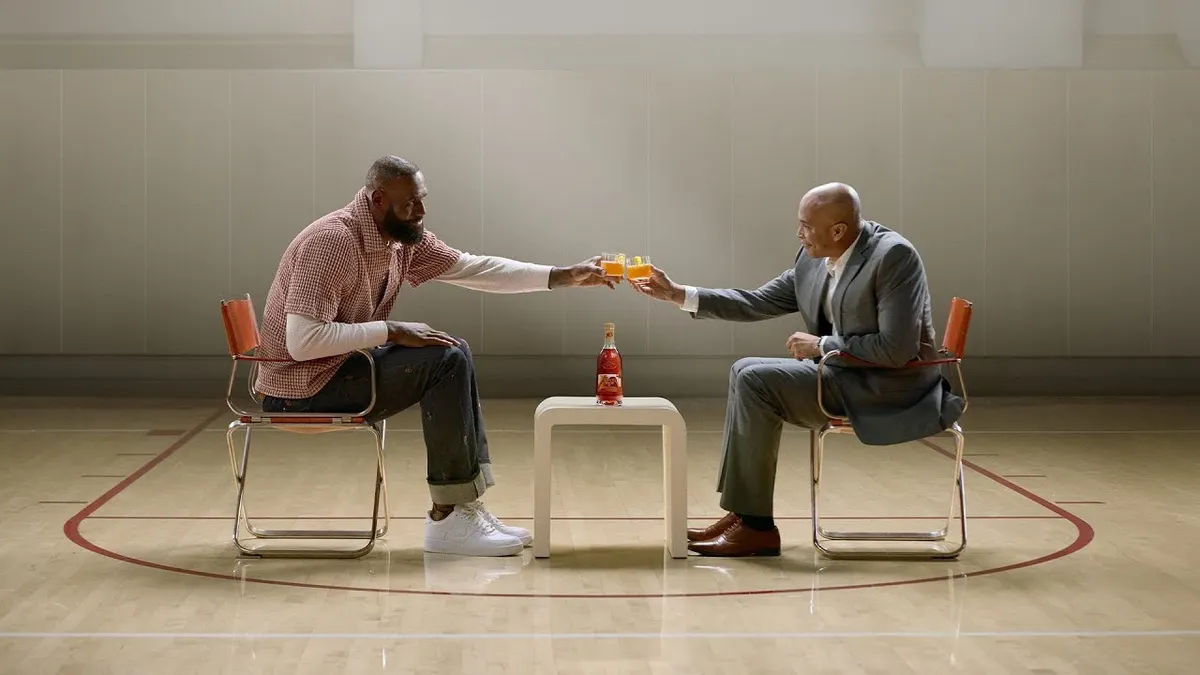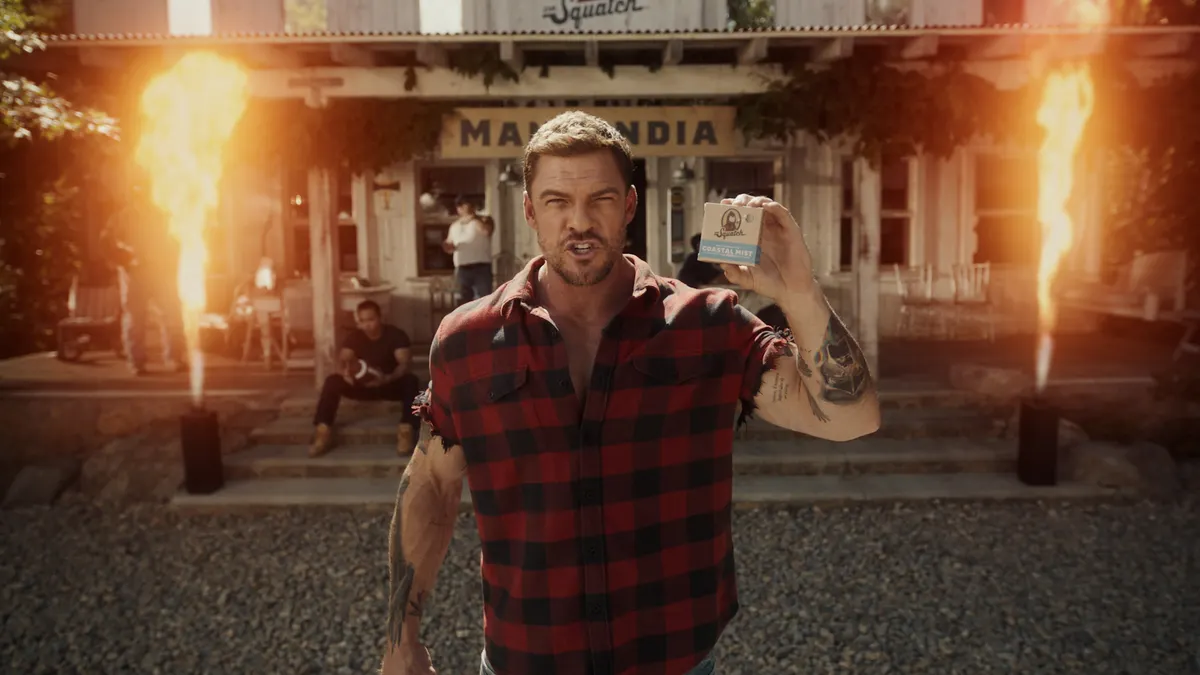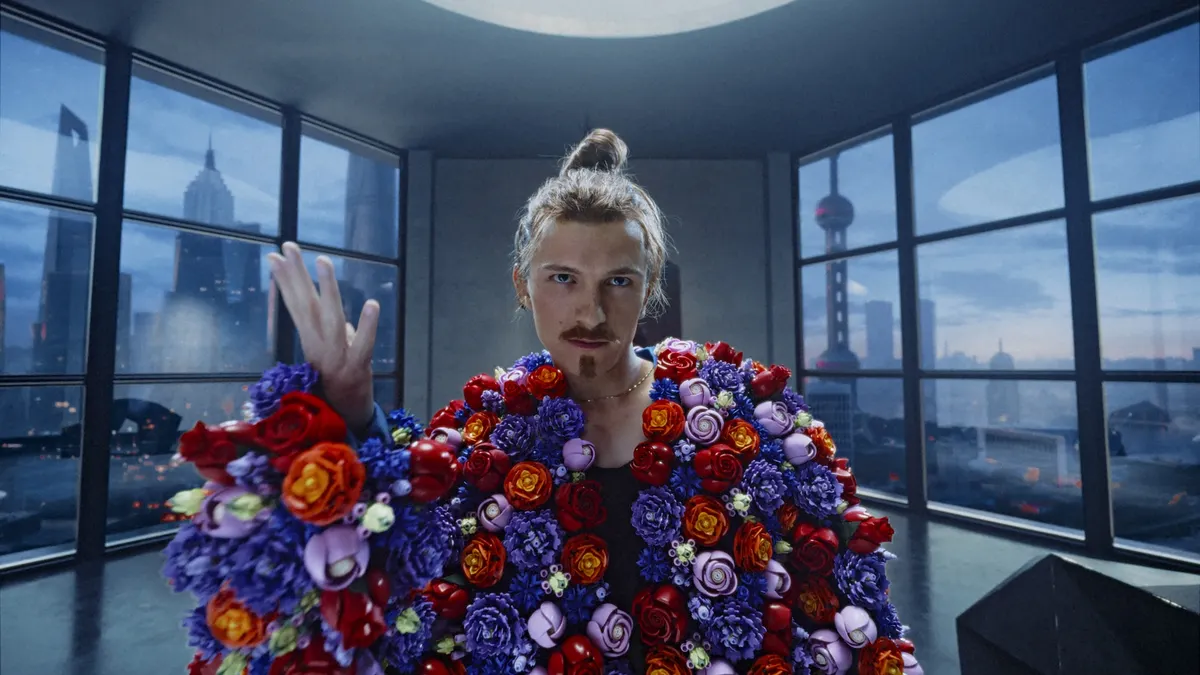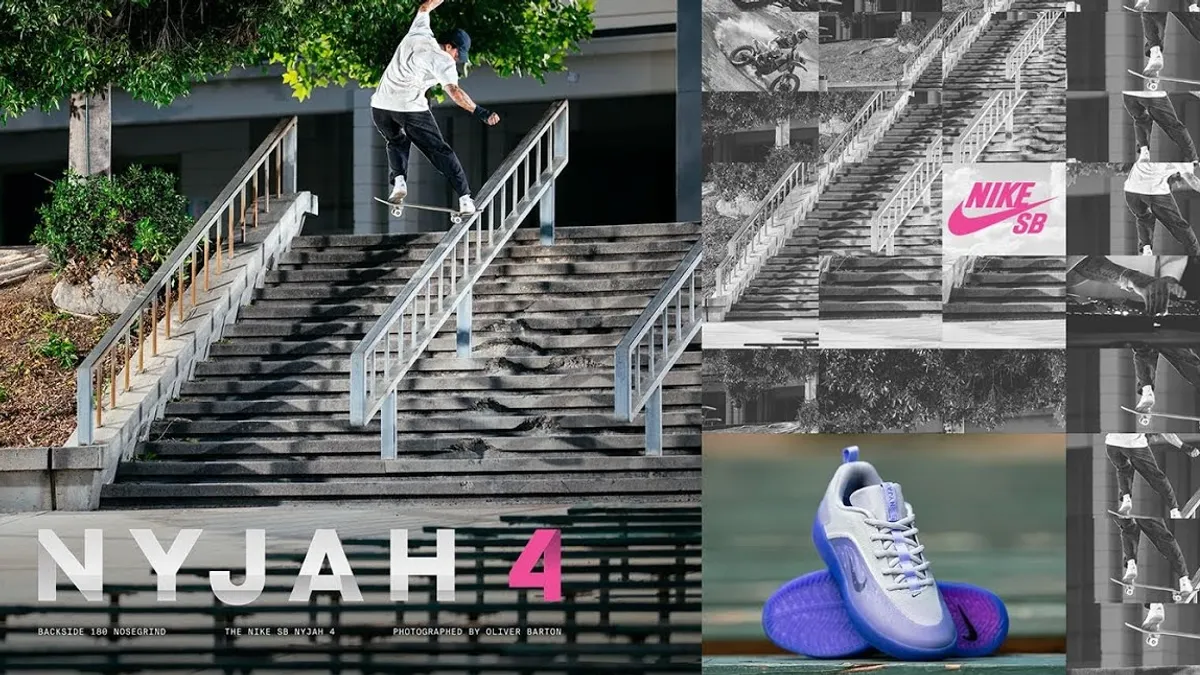As consumers get ready to tuck into some Thanksgiving feasts and spend quality time with friends and family, our editors break down some unusual campaigns around the holiday, including a boozy promo targeted at Turkey Trot runners, a grisly attack ad against poultry maker Butterball and an especially early Super Bowl push:
Michelob Ultra pours beer for Turkey Trotters
The rundown: The Turkey Trot is a Thanksgiving tradition for millions of runners looking for ways to burn some calories before the most gluttonous day of the year. To tap into the tradition and those health-conscious consumers, Michelob Ultra is giving away beers to runners in select markets that follow the brand on Twitter or Instagram and share a photo from their Turkey Trot, tagging @MichelobULTRA and using #WillRunForBeer.
"Running is a passion point for our drinkers and we're excited to bring a new reward to what's become the biggest race day of the year by toasting Turkey Trotters across the country," Azania Andrews, vice president, Michelob Ultra, said in a statement.
Michelob Ultra — "the brand that believes in both being fit and having fun," according to a press release — will send participants a Drizly promotion code that can be used to redeem one of its beers, which has 95 calories and 2.6 carbs.
The results: With its Turkey Trot giveaway, Michelob Ultra is positioning its label to be the post-race beer for the estimated million-plus runners who participate in such events. The promotion could increase awareness just in time for holiday dinners, holiday parties and football playoff season. Plus, the collaboration with Drizly opens up a mobile component that could be popular with the younger, tech-savvy consumers the brand has targeted in the past and who are more frequently favoring digital on-demand services like the alcoholic delivery provider.
Michelob Ultra, the fifth largest beer brand in the U.S., has continued to be a bright spot for parent company Anheuser-Busch InBev, remaining the brewing giant's top share gainer in the U.S. for 14 consecutive quarters. A large part of that continued growth can be attributed to the beer's low calorie, low carb recipe, and marketing that stresses the brand's identity as a beer for active consumers, with campaigns around fitness festivals and tricked-out golf bags.
The fitness focus could be key for other brewers who are losing market share among consumer groups like millennials. Consumers have broadly been shifting away from beer to spirits and wine, with beer consumption among people age 21-27 dropping from 65% in 2006 to 43% in 2017, according to AB InBev data cited in Ad Age.
—Chris Kelly
PETA parodies Butterball's Thanksgiving helpline with grisly 'turkey truth'
The rundown: On Tuesday, People for the Ethical Treatment of Animals (PETA) debuted a video that parodies poultry producer Butterball's Turkey Talk-Line skill on Amazon Alexa. The skill, which uses voice commands to cue Thanksgiving tips for planning, cooking and stuffing turkeys, originally launched in 1981 via phone. This year, PETA is clapping back with a two-minute spot of an "honest version" of the turkey vendor's helpline, including Alexa responses of a turkey's cries, gory slaughterhouse footage and a delivery of bloody turkey limbs. The video wraps with the line: "Butterball's new Alexa turkey helpline: You might not want to ask."
"PETA's video spoofs the companies that try to slap a happy face on stringing up and slaughtering millions of terrified young birds," PETA EVP Tracy Reiman said in a statement shared with Marketing Dive. "If families knew about the pain and suffering behind each turkey corpse sold by Butterball, they'd be asking Alexa for vegan Thanksgiving recipes."
A microsite that hosts the video includes additional details around the treatment of turkeys and a PETA-conducted investigation into a Butterball slaughterhouse. The call to action on the site encourages viewers to "go vegan" and skip the turkey this Thanksgiving and Christmas, as well as to order PETA's vegan starter kit of tips and recipes or register for the organization’s vegan mentorship program.
The results: In what seems to be the golden era of brands gunning for each other online, PETA is tapping into the trend popularized by fast-food chains like Wendy's for some holiday marketing efforts while still weaving in typical scare tactics for added shock value. By taking direct aim at Butterball this year, the animal rights organization will likely snag more attention for its Thanksgiving video than had it targeted the entire industry of poultry producers.
The clip is relatively short and easy to share on social in the days before the holiday. However, PETA may have premiered the spot a tad late to make an impact, as many consumers already have their Thanksgiving menus planned and purchased two days before the festivities — making the organization's CTA of skipping the turkey this year moot.
The animal rights group has previously run Thanksgiving efforts that use modern trends like smart speakers and mock cooking tutorials to resonate with young, hip consumers. What may hinder discoverability or virality of PETA's video this week is the "turkey challenge" prank of kids asking their parents how to cook a 25-pound bird with only a microwave (something Butterball responded to with a balance of snark and grace). A quick Google search shows that PETA's Thanksgiving effort is buried amid screenshots of parents' incredulous responses and coverage of the prank.
—Natalie Koltun
Yellow Tail hops on UGC trend with early Super Bowl push
The rundown: Yellow Tail is using the Thanksgiving holiday as an opportunity to stoke interest in its, uh, Super Bowl campaign, according to details shared with Marketing Dive. Though the Big Game is months away, the Australian winemaker is asking fans to share a six-second video of what makes them happy now with the hashtags #TastesLikeHappy and #Contest on Facebook or Instagram, along with following its accounts on those channels. Participants can also submit their footage to TastesLikeHappy.com before the Nov. 28 deadline.
Yellow Tail will then use two pieces of user-submitted content to craft its spot running around Super Bowl LLI on Feb. 3. One of the two winners will additionally receive an all-expenses-paid trip for two to their "happy place," which could be anywhere in the world. The effort, part of the brand's "Tastes Like Happy" campaign running across iHeart Radio, YouTube, Buzzfeed and other media properties, is being positioned as an opportunity for followers to achieve their own social media fame.
"This is a shot at instant stardom, a real opportunity to gain thousands — even millions — of followers virtually overnight," Iain Douglas, CMO at Deutsch Family Wine & Spirits, the U.S importer and marketer for Yellow Tail, said in a statement.
Yellow Tail is spending $6 million on the Super Bowl portion of the campaign, which it estimates will reach 100 million people, per the release.
The results: Marketers have bumped up their holiday campaigns earlier and earlier over time, so why not do the same for the Super Bowl? Launching the push now gives Yellow Tail a chance to both source user-generated content (UGC) that will eventually be leveraged for its Super Bowl creative and also generate some online chatter during the busy Thanksgiving week, when meal preppers might be looking to snag a bottle of wine to go with dinner.
With the campaign, Yellow Tail returns to the Super Bowl for the third year in a row. The focus on six-second videos for 2019 hints that the wine brand might be looking to experiment with the extra-short ad format that's become increasingly popular, though some in the industry have grown skeptical about its ability to forge an emotional connection with viewers. Tapping into UGC has also become a more common trend in Super Bowl marketing as brands look to tie their TV spots to other channels like social and communicate authenticity with consumers. For its first-ever Super Bowl ad, Kraft this year spliced together photos and posts shared by fans on social media in near-real time.
It will be interesting to see what Yellow Tail's ad looks like given that it's only selecting two submissions and is promoting the contest as an opportunity for online stardom, which could attract aspiring influencers looking to grow their follower counts. Having only one of the winners eligible to receive a gratis vacation, however, might lead to some sour grapes.
—Peter Adams





